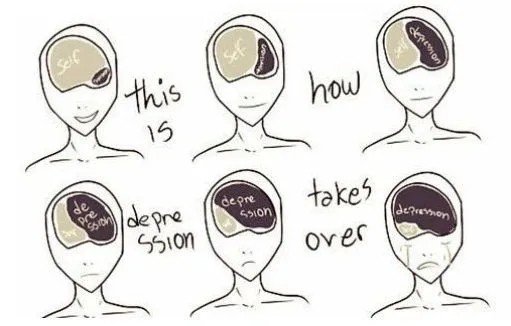How Does Depression Impact Our Thoughts and Actions?
When we think about depression, there are several criteria that are common for this diagnosis. Feeling sad, no longer enjoying activities that were once enjoyable, not being able to sleep or sleeping too much, difficulty concentrating, and fatigue or loss of energy are just a few signs and symptoms.
But how does feeling this level of sadness impact how we think and act?
Depression can have a significant impact on cognitive functioning, leading to a range of cognitive symptoms that contribute to the overall experience of the disorder. These cognitive effects can vary in severity from person to person and can further exacerbate the emotional and behavioral aspects of depression.
Here are some ways in which depression can affect cognition and therefore our everyday lives:
Difficulty Concentrating: Depression often leads to difficulties in focusing and maintaining attention. This can make it challenging to complete tasks, follow conversations, or even read and comprehend written material.
Memory Problems: People with depression may experience difficulties with both short-term and long-term memory. This can affect their ability to recall information, events, and even day-to-day responsibilities.
Negative Bias: Depression can lead to a cognitive bias known as negative cognitive triad, where individuals tend to interpret information and experiences in a negative light. They might have a pessimistic outlook on themselves, their future, and their surroundings.
Cognitive Slowing: Depressed individuals often report feeling mentally sluggish, as if their thought processes are slowed down. This can make decision-making and problem-solving more challenging.
Rumination: A common cognitive pattern in depression is rumination, which involves dwelling on negative thoughts and experiences. This constant rumination can interfere with the ability to think clearly and problem-solve effectively.
Impaired Executive Functioning: Executive functions involve higher-order cognitive processes like planning, organization, decision-making, and goal-setting. Depression can impair these functions, making it difficult to manage day-to-day tasks and responsibilities.
Reduced Interest and Motivation: Depression can lead to decreased interest and motivation in activities that were once enjoyable. This can impact cognitive engagement and participation in various tasks.
Distorted Self-Perception: Depression often distorts one's self-perception, leading to feelings of worthlessness, low self-esteem, and self-criticism. These negative self-beliefs can influence cognitive processing and decision-making.
Social Cognitive Impairment: Depression can affect the way individuals perceive and interpret social cues, leading to difficulties in understanding others' emotions and intentions. This can result in interpersonal challenges.
Cognitive Flexibility: Depression can reduce cognitive flexibility, which refers to the ability to adapt to new situations and perspectives. This inflexibility can hinder problem-solving and adapting to changes.
It's important to note that these cognitive symptoms can interact with and exacerbate the emotional and behavioral aspects of depression. They can also contribute to a cycle where cognitive difficulties lead to negative emotions, and those emotions further impact cognitive functioning. Recognizing these cognitive symptoms is crucial for understanding and treating depression effectively, as they can influence the choice of therapeutic interventions, such as cognitive-behavioral therapy (CBT) and medication.

